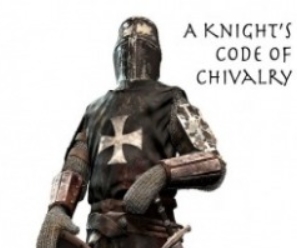About
Freemans Guild US (FMG) an Advocate Group for Freedom and the 1st and 2nd Amendments.
The First Amendment Grants Freedom of Speech The Second Guarantees it.
We believe that traditional values, the Ten Commandments and the United States Constitution has been proven to be the best way to govern to date.
- A site for Libertarians, entrepreneurs, and supporters of first and second amendments.
- Without the first and second amendments, there would be no entrepreneurs or freedom.
- The rights of the individual are superior to the collective.
We believe that individuals have certain “rights,” namely, that they are deemed “by nature, equally free and independent, and have certain inherent rights, of which, when they enter into a state of society, they cannot, by any compact, deprive their posterity, namely: the enjoyment of life and liberty, with the means of acquiring and possessing property, and of pursuing and obtaining and possessing property, and of pursuing and obtaining happiness and safety.”
Definitions freeman (n.) Old English freoman “free-born man;” see free (adj.) + man (n.). Similar formation in Old Frisian frimon, Dutch vrijman, Old High German friman. guild (n.) also gild, early 13c., yilde (spelling later influenced by Old Norse gildi “guild, brotherhood”), a semantic fusion of Old English gegield “guild, brotherhood,” and gield “service, offering; payment, tribute; compensation,” from Proto-Germanic geldja- “payment, contribution” (source also of Old Frisian geld “money,” Old Saxon geld “payment, sacrifice, reward,” Old High German gelt “payment, tribute;” see yield (v.)). The connecting sense is of a contribution or payment to join a protective or trade society. But some look to the alternative prehistoric sense of “sacrifice,” as if in worship, and see the word as meaning a combination for religious purposes, either Christian or pagan. The Anglo-Saxon guilds had a strong religious component; they were burial societies that paid for Masses for the souls of deceased members as well as paying fines in cases of justified crime. The earliest reference was to sacred banquets (Tacit: Germania 21-2) for which a contribution had to be paid, and which furthermore accounts for the meaning ‘fraternity’ of the formation geldja-. In medieval times the economically oriented fraternities, the guilds, adopted this word, but it could still be used in reference to religious fraternities …. The contribution to the banquets, gelda-, acquired a legal meaning ‘recompense’, but also the meaning ‘money, currency’ in general.Dirk Boutkan, “Old Frisian Etymological Dictionary”Continental guilds of merchants, incorporated in each town or city and holding exclusive rights of doing business there, arrived after the Conquest. In many cases they became the governing body of a town (compare Guildhall, which came to be the London city hall). Trade guilds arose 14c., as craftsmen united to protect their common interest.
Community Guidelines
Please respect the following community guidelines to maintain an enjoyable environment:
- Keep conversation respectful, without personal attacks
- Don’t blow up other members’ feeds. If someone isn’t responding to you, let it be
- No pornography
- Keep out behavior that could be seen as trolling/spamming
- Relax, be yourself, and enjoy
